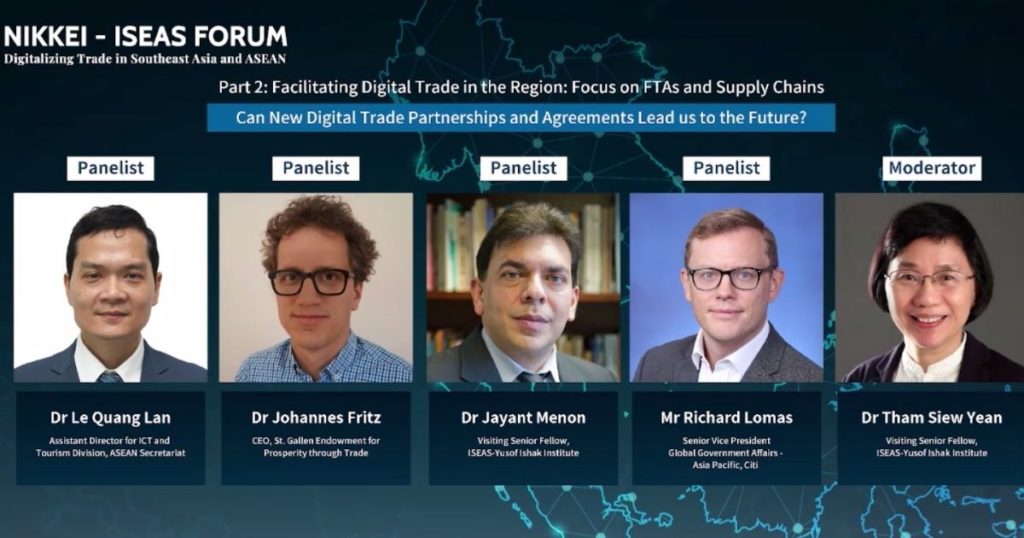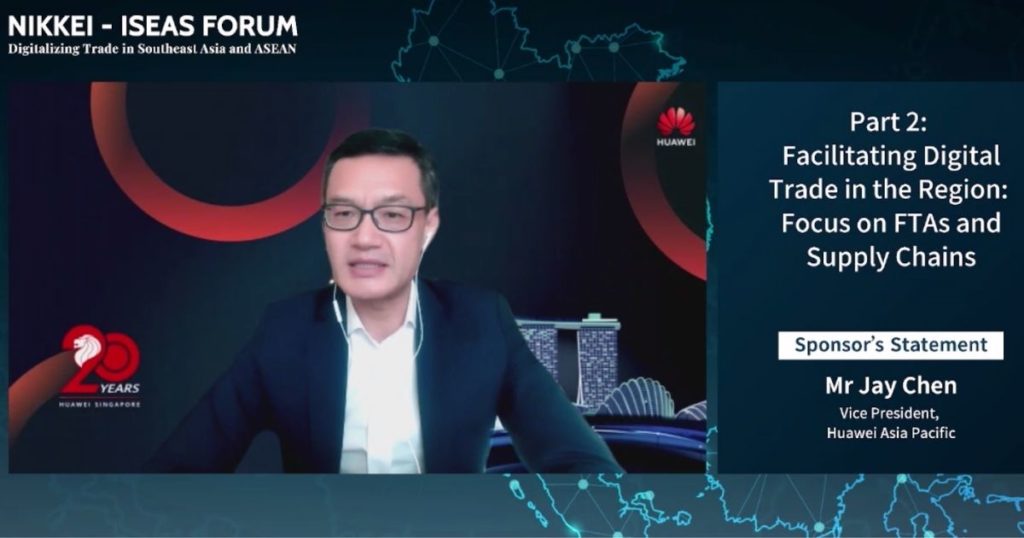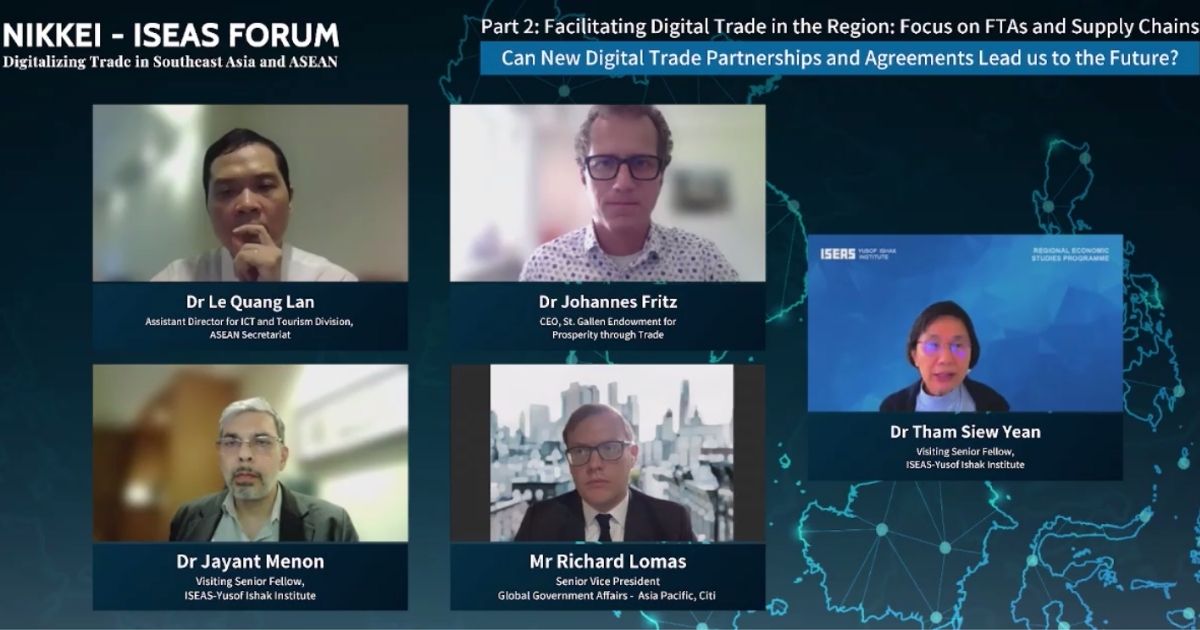As the ASEAN economic and free trade bloc agreed to develop a digital trade pact, the Digital Trade Forum co-organized by NIKKEI Group and ISEAS – Yusof Ishak Institute (ISEAS) gathered minds from governmental organizations, think tanks, and industry online to extend a closer look at cross-border digital trade frameworks and supply chains.
“Next five years is a crucial phase to transform ASEAN towards an inclusive, sustainable and integrated digital economy community,” emphasized by Dr. Le Quang Lan, Assistant Director for ICT and Tourism, ASEAN Secretariat, “This process requires a strong commitment from the ASEAN Member States, effective coordination efforts among sectoral bodies of ASEAN, and greater contribution of relevant stakeholders, including the private sector.” He thanked Nikkei, ISEAS, and Huawei for the initiative to organizing the Forum, which was a “good example of how input can be organized.”
Jay Chen, Vice President of Huawei Asia Pacific, delivered a speech on accelerating digital transformation and collaboration on new rules for the digital ecosystem to unlock the potentials for growth in the region. To enable Southeast Asia to seize opportunities during this crucial five years for development, Huawei is committed to providing infrastructure, connectivity, nurture start-ups and cultivate digitally skilled talents under the promise of “In Asia Pacific, for Asia Pacific.”
Investing in digital infrastructure with blended vertical industrial development
“The pandemic has shifted the focus of anti-globalization forces from trade liberalization to capital, labor and data mobility,” according to Dr. Jayant Menon, Visiting Senior Fellow at ISEAS, who also highlighted opportunities from digitization for win-win outcomes that benefit all countries in the region, whatever their stage of digital transformation. He also touched upon the digitalization of supply chains and paperless trade, which increase business resilience and efficiency.

“It is commendable that Huawei as a global leader in ICT is taking great efforts towards cultivating digital talent as well as innovating new technologies, future that we see is going to be everything digital and the Asia Pacific with the largest population in the world will be the Power House of for digital talent and digital innovation in the years to come. Therefore it is imperative that Asia Pacific economies take steps towards Digital Transformation and fast adopt technologies that enable the economies to be digital.” V. Maheswaran a Global Economic and Equity Analyst from Sri Lanka said taking part in the event online.
Speakers on the forum also mentioned that cutting-edge technologies such as AI, Cloud, Internet of Things, and 5G are all digital infrastructure. The importance of investing in digital infrastructure with blended vertical industrial development and private sector funding was stressed. New digital trade rules can unlock potential, for example, digital documents can save up to 20% of a transaction’s costs.
The importance of deepening trust amongst stakeholders in South East Asia was echoed by all participants. Dr. Johannes Fritz, CEO of St. Gallen Endowment for Prosperity through Trade, said mutual trust and recognition of data governance is a key element driving digital trade forward. To address better the concerns of the digital divide, cybersecurity, and data management (especially between less-developed countries and front-runners), private companies are valuable contributors to policy-making because they help to shape realistic regulations that are business-friendly, respond to common interests, and bridge social gaps such as internet infrastructure and digital skills.
Facilitating digital trade and economy
The Regional Comprehensive Economic Partnership (RCEP) is an important building block for regional trade, together with other FTAs in the region. Digitalization can improve the benefits flowing from these agreements. The recently held ASEAN Economic Ministers (AEM) Meeting highlighted the digital integration initiatives and emphasized the seamless and secure flow of goods, services, and data.

The region can further implement and develop regulatory forms such as FTAs to facilitate digital trade and economy, seizing the chance to lead in the digital era based on collaborations, mutual-agreed standards, and better governance.
The forum was closed up by Dr. Tham Siew Yean, Visiting Senior Fellow at the ISEAS, and Ms. Sonoko Watanabe, Managing Director & Regional CEO, Nikkei Group Asia, recognizing contribution by joint-organizers including ISEAS, Nikkei, and Huawei and global eminent speakers for knowledge sharing.
Editor’s note: Article slightly edited for clarity






